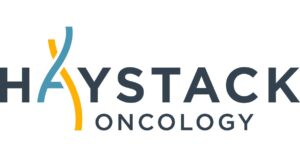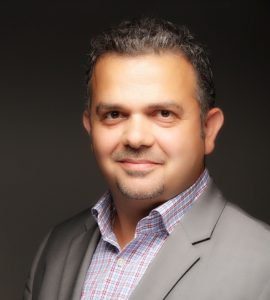
In Conversation: Mark Schenerman, Graduate Program Director in Biotechnology at UMBC
The University of Maryland, Baltimore County (UMBC) and its life sciences program has been a major contributor to the BioHealth Capital Regions’ (BHCR) ascent to top global biocluster status. UMBC’s life sciences research has produced spin-out technologies and startups that have bolstered a growing Baltimore biohub. UMBC’s biotechnology graduate program, in particular, has made significant contributions to the region’s workforce development efforts that have produced one of the deepest life sciences talent pools in the U.S.
The biotech master’s degree program at UMBC does an outstanding job arming its students with the technical acumen and the essential soft skills to have successful biotech careers across a wide range of roles and disciplines. But what makes UMBC’s program even more valuable is the program’s expanding network of industry partnerships that connect grad students to real-life, hands-on industry experiences.
UMBC’s biotech graduate program, which started in 2009 at its Catonsville campus, has grown steadily over the years; the program now operates out of the UMBC Shady Grove campus in Rockville, placing UMBC students in the heart of the BHCR biotech community. UMBC’s biotech program’s progress has been significant and steady, but it is not done looking for new ways to better serve its grad students and the broader life sciences community.
Just recently, UMBC appointed biotech industry veteran Mark Schenerman as Graduate Program Director in Biotechnology, marking an important milestone for the program as it looks to move into a new phase of innovation and growth. Schenerman is an active UMBC biotech professor, runs his own biotech consulting business, and built an impressive biotech career that included more than two decades at MedImmune, one of the most important biotech companies in the region’s history.
The Biobuzz team recently caught up with Schenerman to discuss his new role, the future of biotech careers and what’s ahead for the UMBC biotechnology master’s program.
Tell us about your career prior to taking this new role at UMBC?
I just joined the program in May. This is a really great opportunity. I’ve been teaching at UMBC for around 7 years; I teach a course on development and regulation of biopharmaceuticals. I’ve worked closely with Tony Moreira at the Catonsville campus for many years. Tony is one of the originators of the UMBC biotech regulatory program within the biotech master’s.
I’m also the president of a consulting firm that I started about five years ago. I do consulting for a wide range of large, multinational companies as well as small startups.
Prior to that, I was with MedImmune/AstraZeneca for 23 years where I led a group responsible for analytical development; this group at one point included over 200 scientists across three global locations. Earlier in my career I spent six years at Bristol Myers Squibb company leading analytical development efforts.
I did a postdoc at Cornell University, earned my PhD from the University of Florida in biochemistry and molecular biology and I received my undergraduate degree from the University of Maryland in medical technology. I was raised in the Baltimore area, and though I’ve traveled quite a bit, I wanted to come back to the area and this was a great opportunity to do so.
What makes UMBC’s master’s in biotech program unique and why are you excited about your new role?
I think the UMBC biotechnology graduate program is special and unique. We have very talented, experienced faculty, a curriculum that is specifically designed for students to advance their industry careers, and all of our coursework is tailored to the needs of industry.
We also provide students with a really broad background on the biotech business, including courses on legal, IP, project management, experiment design and others. Students can also choose from a wide range of electives, including electives that lead to certificates in biotech regulation and biotech management. We even have a new course this fall on cell and gene therapies.
There are other strong biotech masters programs in the region but UMBC offers a shorter path to graduation than some at a lower cost and with a variety of online, in person or hybrid course options. This program offers great value and flexibility to our students.
Why is right now an exciting time to be pursuing a biotech career?
There have been so many gigantic changes in science, technology and medicine in just the last few years. The pandemic has triggered a lot of industry innovation. For example, RNA vaccines pretty much didn’t exist pre-pandemic and now they’re everyday vaccines. There have been fantastic advances in cell and gene therapies and these therapies have remarkable potential.
We’re currently watching a big shift in biotech’s ability to address unmet medical needs. And this is a fantastic time to get into biotech because there’s a tremendous need for talent. The industry is rapidly growing and there are simply not enough people to fill the open positions. I can’t think of any better reason to get into biotech.
In some parts of the workforce there seems to be some misconceptions about who can pursue a biotech career and that you need to have an PhD or some advanced scientific degree to do so. How does UMBC and the biotech master’s program help students see what’s possible and guide them to the right career fit?
Many people that come to our graduate school open houses and enter our program simply don’t know what’s possible in a biotech career. This is, in part, because STEM career education in high schools is only partially successful. Some counties in Maryland do a great job of STEM programming but in other counties it is more of a challenge.
Diversity in the life sciences is another challenge. UMBC has done a wonderful job encouraging diversity in STEM and we need to continue to recruit minority students from the Washington DC and Baltimore City metro areas. Building an awareness of what’s possible in biotech is key.
Our biotechnology graduate program has built courses and partnerships to help guide our students to the right career opportunities. UMBC has entered into a mentoring partnership with Johns Hopkins Biotech Network (HBN) and CASSS (a scientific industry/regulatory agency organization). In this program, graduate students get paired up with a mentor from industry or FDA. Each mentor commits to three months of mentorship, which is career-focused. We get a wide range of students that enter the program and it’s entirely student-driven. Generally we do two cohorts a year, one in the fall and another in the spring, and we typically match about 40 master’s/PhD students and postdocs. Our students are being mentored and talking to people from companies like Genentech, Amgen, J&J, GSK, AZ and the FDA. Depending where the student is in their career path, we tailor the program to where they are in the process so that they can find the right biotech career fit.
The FDA has been a great connection for our program. We’ve had tremendous success in securing FDA guest speakers; I had six FDA speakers in my class last fall. This gives the students the opportunity to directly interact with people at the FDA. We’ve recently had several students go on to work there. The Maryland Tech Council is another terrific partner and they’ve done a great job promoting our program.
These industry and agency relationships have worked out really well for our students and have helped our program grow.
You’re been in academia and industry in this region since before it took off as one of the premier bioclusters in the U.S. You were with MedImmune in the early days. What’s your perspective on how workforce needs have changed over time and what are the biggest gaps that need to be filled?
In some ways, the workforce needs are the same. In the I-270 corridor there are a lot of small to medium-sized companies that are similar to MedImmune when I joined as the 100th employee. In those companies you don’t necessarily know where your funding is coming from and you have to work in a very entrepreneurial environment. You have to wear a lot of hats so your company can hit those important milestones.
So in that way the workforce needs are fairly similar to twenty years ago.
However, right now I see the biggest gap in cell and gene therapy, which is quite labor intensive—you have to take cells out of a patient, treat those cells and put them back into the patient. There are a lot of steps and logistics. That’s a lot of labor and it’s skilled labor like flow cytometry, for example. I’m trying to start a course on flow cytometry right now to build on the cell and gene therapy course we already offer. We hope to grow the cell and gene therapy course to three parts that would help fill this workforce gap in cell and gene therapy.
In addition to technical and hard skills, soft skills are also in high demand. I am a former hiring manager and I always preferred hiring candidates with a broader background and a better understanding of the business. In Big Pharma there’s a lot of specialization, but generally the employees that do the best and grow the fastest are the ones that understand the business by reaching out to other functions to understand how they work. Balancing technical and soft skills is key to future biotech career success.
What are some of the program’s future plans?
Well, I’ve only been in this role for a short time so I think we will stick to the short term. I’m currently in the process of developing a longer term, strategic plan.
Our biotechnology graduate program enrollment is up 100% this year, which is absolutely fantastic. What I’d like to improve in the short term is more domestic enrollment. Right now our enrollment is about 90% international students and with a little more outreach we can do better.
In addition, I think we can make some minor adjustments to the curriculum to better meet the needs of industry. Tracking student success and developing metrics around that is also a priority. In general, we want to increase enrollment and expand our course offerings to better meet the needs of the growing biotech industry.
- About the Author
- Latest Posts
Steve brings nearly twenty years of experience in marketing and content creation to the WorkForce Genetics team. He loves writing engaging content and working with partners, companies, and individuals to share their unique stories and showcase their work. Steve holds a BA in English from Providence College and an MA in American Literature from Montclair State University. He lives in Frederick, Maryland with his wife, two sons, and the family dog.






